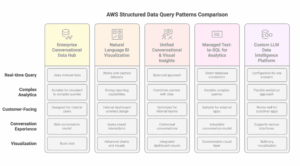The pharmaceutical industry is undergoing a significant transformation thanks to digitalization, a trend that promises to drive its growth at an annual rate of 15% until 2030, according to a recent report by McKinsey. This surge is being fueled by emerging technologies such as process automation, massive data analysis, known as Big Data, and supply chain optimization.
Automation has become an essential component to improve efficiency and minimize human errors in critical phases of the drug lifecycle, where accuracy is crucial. Albert Alsina, CEO of ERNI Spain, highlights that “the ability to process large amounts of data is driving clinical research and enabling faster development of innovative drugs.” This ability to analyze significant volumes of information in real time allows companies to make better strategic decisions and accelerate the creation of new treatments.
These innovations are not only reducing production time, but also favoring greater customization of treatments, better adapting to the needs of each patient. Thanks to the integration of advanced technologies in the supply chain, visibility and control over logistical operations have improved significantly. This approach helps reduce costs and ensure that drugs reach patients in need on time.
Alsina emphasizes that “the opportunities outweigh the obstacles, and the impact of digitalization in the pharmaceutical industry promises to continue increasing its global relevance in the coming years.” However, he acknowledges that challenges persist, such as regulations and data protection.
The application of Big Data in the sector has fundamentally transformed the research and development of new drugs. The analysis of large volumes of clinical data allows researchers to identify patterns more quickly, accelerating the creation of innovative treatments and improving the effectiveness of clinical trials.
Lastly, supply chain optimization has improved the planning and distribution of pharmaceutical products. Alsina mentions that “companies are investing in solutions that allow them to be more agile and respond quickly to market demands,” highlighting the importance of ensuring that drugs reach patients punctually.
ERNI, a Swiss company specializing in software engineering, has led the implementation of these comprehensive digital solutions in the healthcare, automotive, robotic, and industrial sectors. With 25 years of experience, ERNI stands out for its focus on developing interpersonal skills, service leadership, and sophisticated technical learning.
Referrer: MiMub in Spanish











